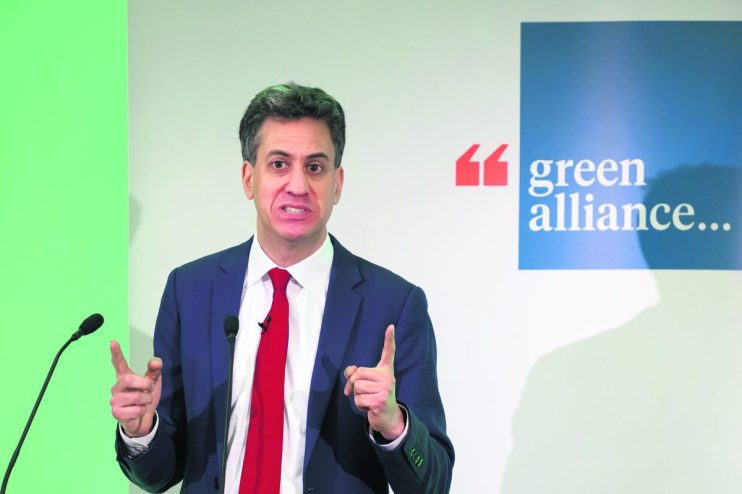
Rumours persist that Ed Miliband, the energy secretary, could be shunted out of his role when the Prime Minister conducts his first major reshuffle since last summer’s election victory. Keir Starmer has the perfect excuse; the world has changed. He’s fond of saying that, and of course it’s true; huge changes are afoot and the global economy looks very different when compared with the conditions of even a few months ago.
Global growth forecasts are being downgraded, supply chains are being upended and nation states are looking for competitive advantages. It’s tempting to conclude that Miliband simply hasn’t noticed any of this, but the truth is worse; he has noticed, and he’s doubling down. He might not be dancing around wind farms with a ukulele, as he did during the election campaign – literally – but he has sensed that changes in corporate priorities, political realities and economic conditions are unfolding not necessarily to his advantage. In response, he has hit out at the “nonsense and lies” being put about by opponents and critics of the UK’s dash to a Net Zero utopia. Furthermore, he’s now claiming that the mission isn’t just about energy security but “green jobs” and, for good measure, “social justice.”
Now who’s talking nonsense? This magical thinking forms part of what City AM columnist Joe Hills describes as “everythingism” – the tendency in politics to believe “that every policy can be used to deliver every other policy.” Deployed by Miliband to see off his critics, it is in fact close to an admission of defeat. As for the charge that his opponents are “making up lies,” does this extend to anyone who scrutinises and then criticises the UK’s arbitrary and self-destructive goal of achieving Net Zero carbon emissions by 2050? After all, current policy in this area is absurdly muddled, the result of forcing decisions through the Net Zero policy machine and then sticking to them regardless of how irrational they are.
As Panmure Liberum’s Simon French points out (in an extremely level-headed piece of analysis) “in reducing domestic supply of oil and gas the UK is, in fact, adding to carbon in its energy mix…by increasing its reliance on dirtier foreign imports.” He notes that the UK’s reliance on imported gas comes with “almost four times the carbon intensity of UK production.” This is just one of many contradictions that now sit at the heart of UK energy (and industrial) policy. This area should be a bastion of pragmatism, not least now that “the world has changed.”



